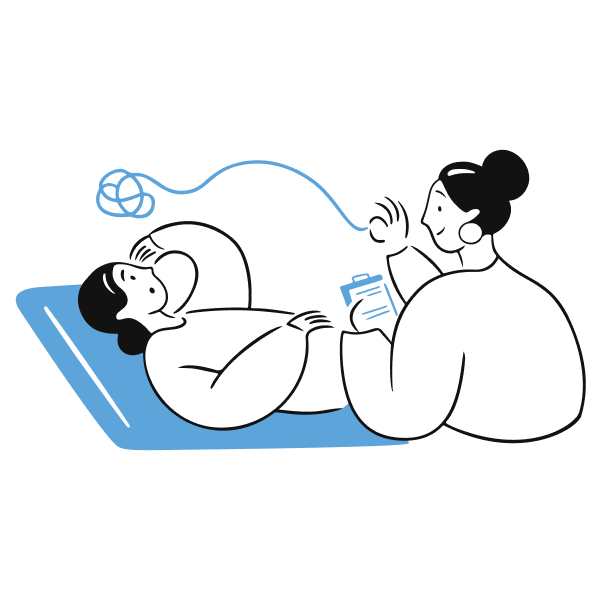When you hear the word hypnotherapy, you think of the hypnosis you see in videos. This form of hypnosis is for entertainment. It is not comparable to hypnosis in psychotherapy. In this article you will read what hypnotherapy is, how it works and when it is appropriate to apply.
What is hypnotherapy?
In hypnotherapy you switch off your conscious thoughts to explore your subconscious mind undisturbed. You learn to recognize thoughts and feelings, while gaining new insights. It is certainly not the hypnosis which is used in videos for entertainment.
Therapeutic daydreams
Will I lose control over myself and my body during hypnosis?
During hypnosis, you are still in control of yourself. The therapist is not controlling your body and not able to make you do crazy things, the way you might have seen in videos. You decide what you do or don’t do at all times.
Is hypnotherapy right for me?
Hypnotherapy is mainly used to make subtle alterations to our thoughts and behaviors. It is used to treat a variety of symptoms, including:
- Symptoms of anxiety
- Stress
- Lifestyle problems
- Sleep problems
- Pain
- Feelings of depression
- Emotional outbursts
- Psychosomatic symptoms
- Sexual problems
- Irritable bowel syndrome
How does hypnotherapy work?
During a hypnosis session, the therapist brings you into your subconscious mind through speech. This state of hypnosis is also called a trance. It brings your body and mind into a calm and relaxed state, in which you explore your subconscious. You learn to listen to the subconscious, without your conscious brain constantly distracting you. You gain new insights that you can use in your daily life.
How is this different from meditation?
Why hypnotherapy?
Psychologist for hypnotherapy
A treatment starts with an introduction in which the psychologist examines whether hypnosis suits your needs. Together with your therapist you agree to the goal of your treatment and the type of treatment. You always choose what you want to work on. Are you curious about what hypnotherapy can do for you?
-
Do you have any questions? Call us at 085-1308900 or contact us online. Together we will see if hypnotherapy can be a solution for you.
-
At iPractice, you will work with 2 psychologists. Treatment consists of both online contact and regular consultation room sessions at one of iPractice’s locations. Or find out more information about the intake and treatment process at iPractice.
-
Our psychologists only give hypnosis as an addition to evidence-based treatments.
-
Hypnotherapy is in many cases not or partially reimbursed by your health insurance company as an alternative treatment. At iPractice, hypnosis is only given in addition to an evidence-based treatment that is often reimbursed by health insurance companies. See which health insurers reimburse our care.
FAQ
You discuss this with your psychologist and it depends on your goal.
Hypnotherapy is not the same as EMDR.
Hypnosis is a state of altered consciousness, a type of trance. It uses relaxation techniques and imagination, similar to a daydream or fantasy.
Eye Movement Desensitization and Reprocessing, abbreviated to EMDR, is a therapy for people who continue to suffer from the effects of a shocking experience, such as an accident, sexual assault or an incident of violence. The therapist will ask you to think back to the event, including associated images, thoughts and feelings. First, this is done to gather more information about the traumatic experience. Then the processing process is initiated. The therapist will ask to recall the event again. But now this is done in conjunction with a distracting stimulus.
If hypnotherapy doesn’t work for you, you and your psychologist will review what treatment is better suited to your needs.
Sources
[1] Flik, C. E. et al. (2019). Efficacy of individual and group hypnotherapy in irritable bowel syndrome (IMAGINE): a multicentre randomised controlled trial. The lancet Gastroenterology & hepatology, 4(1), 20-31. https://www.thelancet.com/journals/langas/article/PIIS2468-1253(18)30310-8/fulltext


 Nederlands
Nederlands
